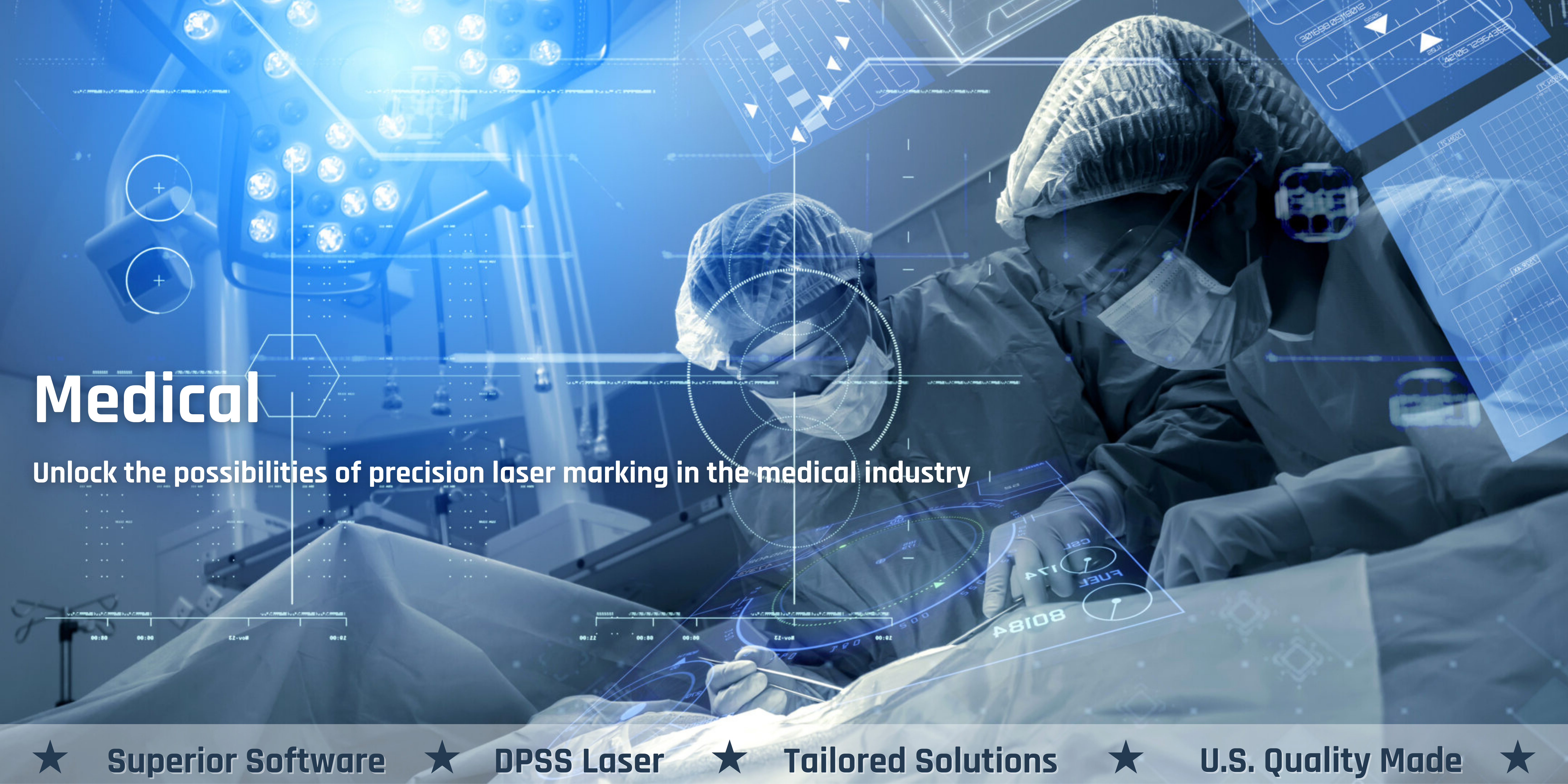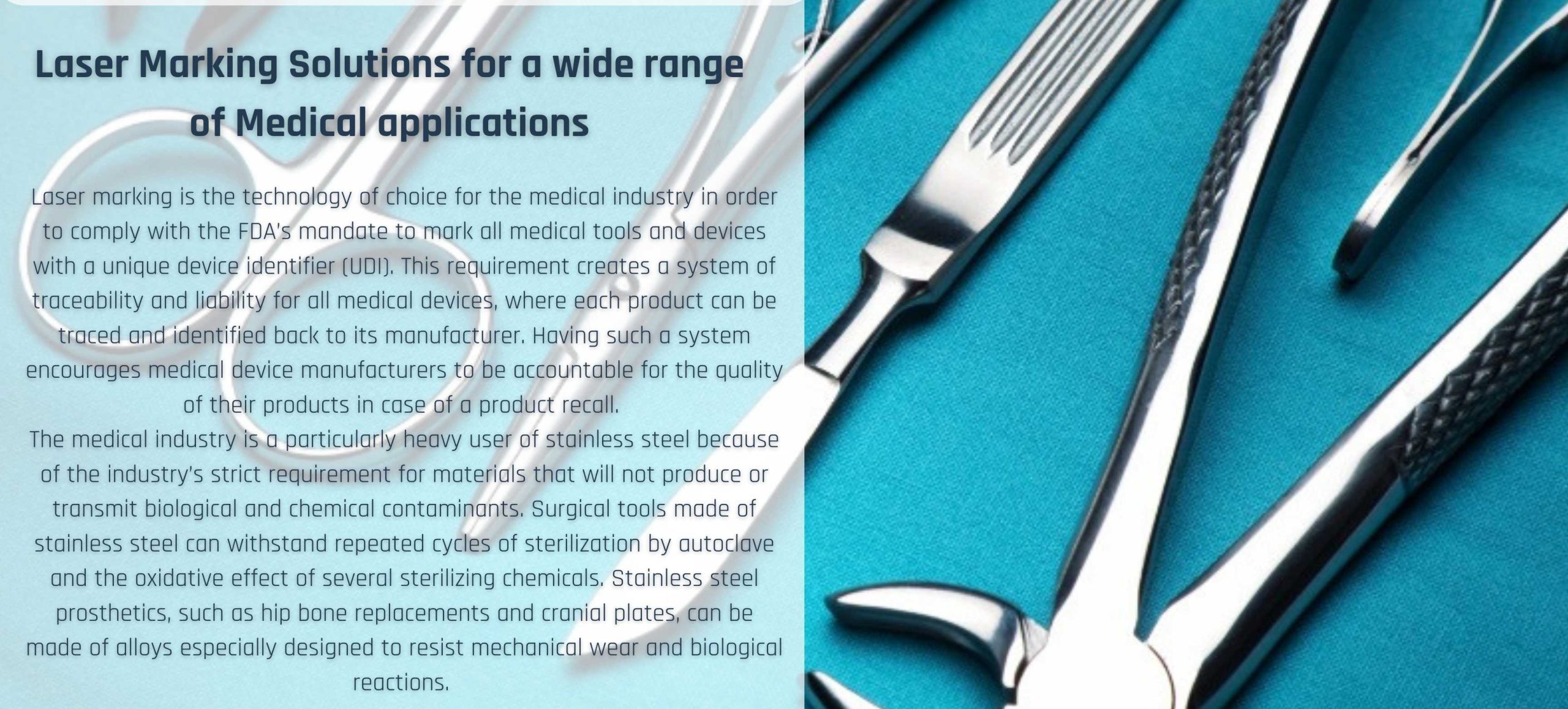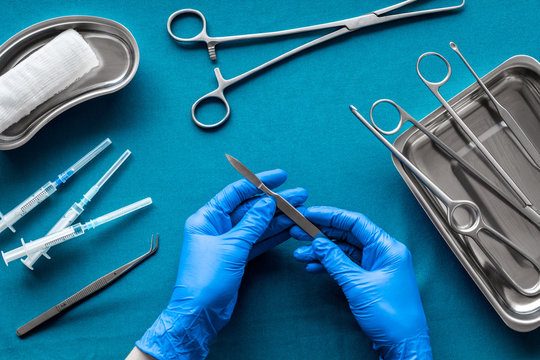Key Benefits:
· Laser mark plastics without foaming
· Metal marking without breaking the surface (for passivation)
· Interface with UID systems
· Custom automation and integration solutions
· Scan data from Travelers and send it to the Laser

Key Benefits:
· Laser mark plastics without foaming
· Metal marking without breaking the surface (for passivation)
· Interface with UID systems
· Custom automation and integration solutions
· Scan data from Travelers and send it to the Laser


Laser Annealing for HIBCC & GS1 UDI Compliance
The type of mark required by the medical device industry is called an annealed mark. Annealing does not remove or engrave the material. Instead, annealed markings are created by using the heat of the laser beam, and bringing the work-piece close to its melting point. As a result, the laser beam creates the desired dark oxide layers on the work-piece surface. The result is highly dependent on the composition of the material and the resulting oxide.
Since it does not remove any material, annealed marks are smooth to the touch. As a result, annealing is very instrumental in the medical industry- it prevents pathogens from finding a place to harbor bacteria and causing future infections in implants. Laser annealing for medical devices can be performed on ferrous metals, titanium, and particularly medical grade stainless steel. RMI Laser’s A-10 model is specially designed for annealing, hence the letter “A” in the model name. It uses specially tuned optics on board the YVO4 laser marking system (DPSS) to even out the power delivery over the same laser spot size.
RMI Laser is a leading solutions provider of laser marking, laser etching and black laser annealing on your stainless medical products. Our machines will provide a mark that will survive your passivation process. RMI Laser engineers have extensive real-world experience when it comes to laser marking medical components and are ready to work with you on your most demanding projects. For over 25 years, RMI Laser has developed laser marking machines around our customer needs, and we will continually strive to bring you the latest technology in DPM (Direct Part Marking) for both metal and plastic materials. RMI merges advanced in-house laser technology with tailored solutions which allows us to offer customers a unique benefit and advantage against the competition.
In addition to stainless steel, the medical industry utilizes a wide range of highly engineered medical-grade plastics which include: Polypropylene, Polyethylene, Polycarbonates, Polyoxymethylene, Polystyrene, HPDE, Vespel® Polyimide among others. For laser marking on these materials, industry standard fiber lasers can often be too powerful and “hot” resulting in melted and scalded parts.
RMI laser marking systems based on our in-house DPSS (diode pumped solid state) technology offer superior marking performance on most plastics due to their shorter laser pulse widths which result in a “cooler” mark when compared to fiber lasers. RMI offers both Nd:YAG and Nd:YVO4 laser marking systems for many plastic applications. For special plastics that do not absorb the 1064nm beam generated by either fiber or YAG/YVO4 laser marking systems, they can turn to a “green” laser marker operating at 532nm such as RMI’s model U-5G.

106 Laser Drive, Building #2
Lafayette, CO 80026
+1.866.952.7370
+1.303.664.9000
info@rmilaser.net
Copyright © 2024 RMI Laser, All Rights Reserved